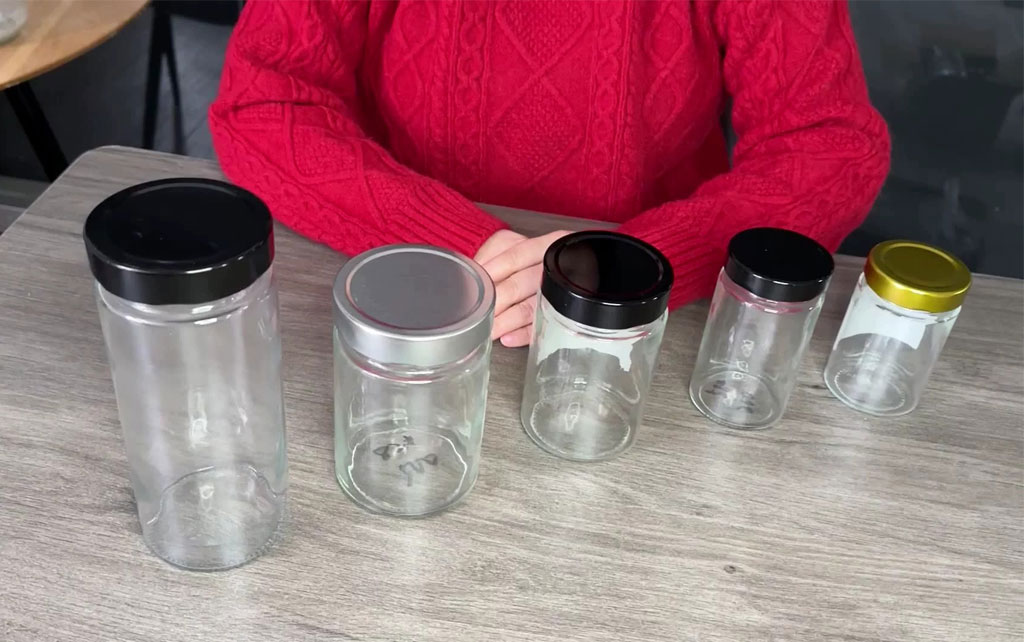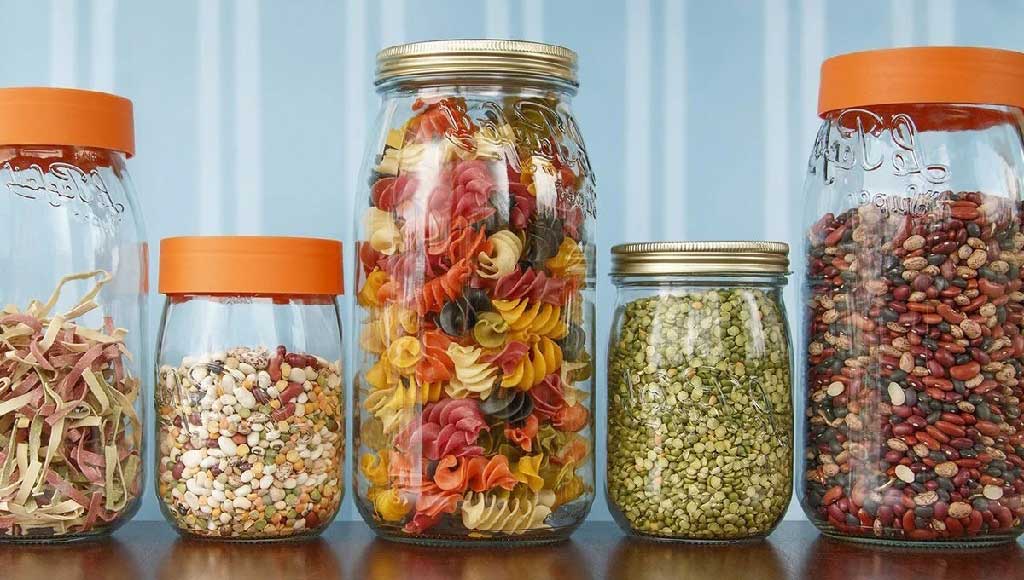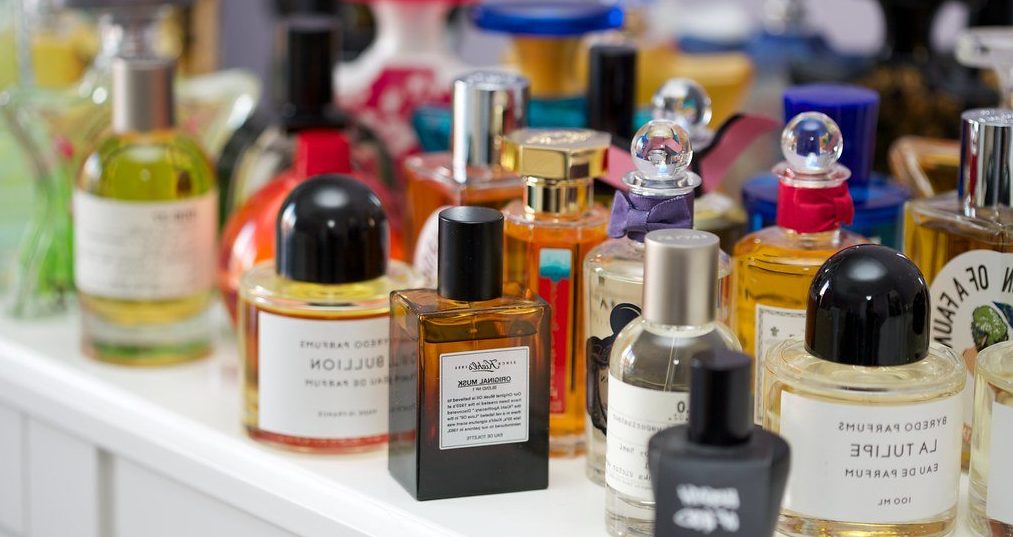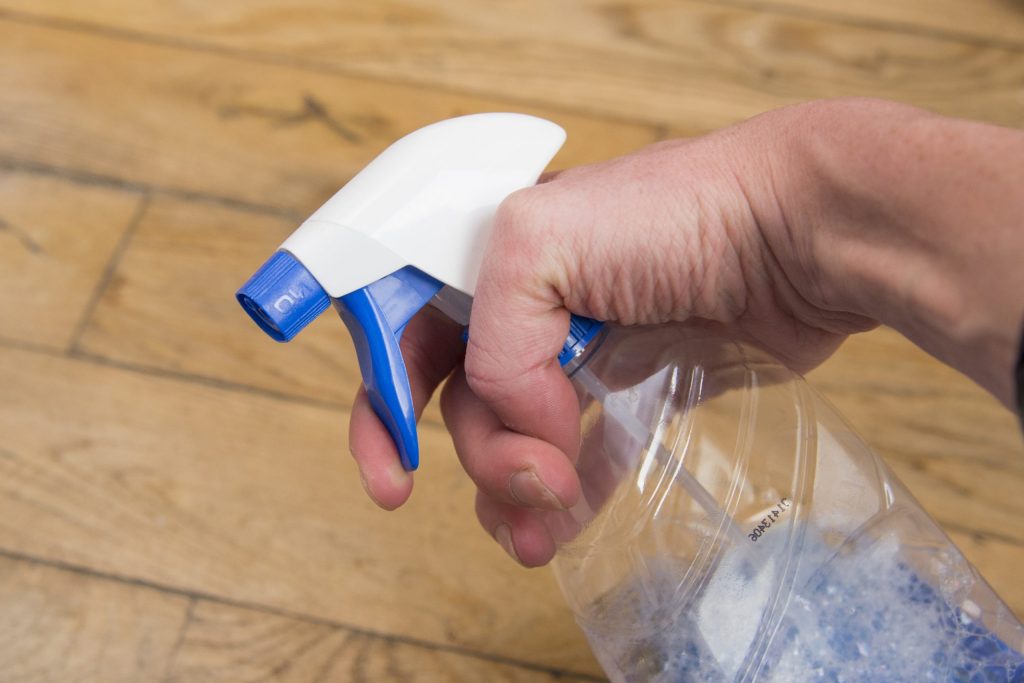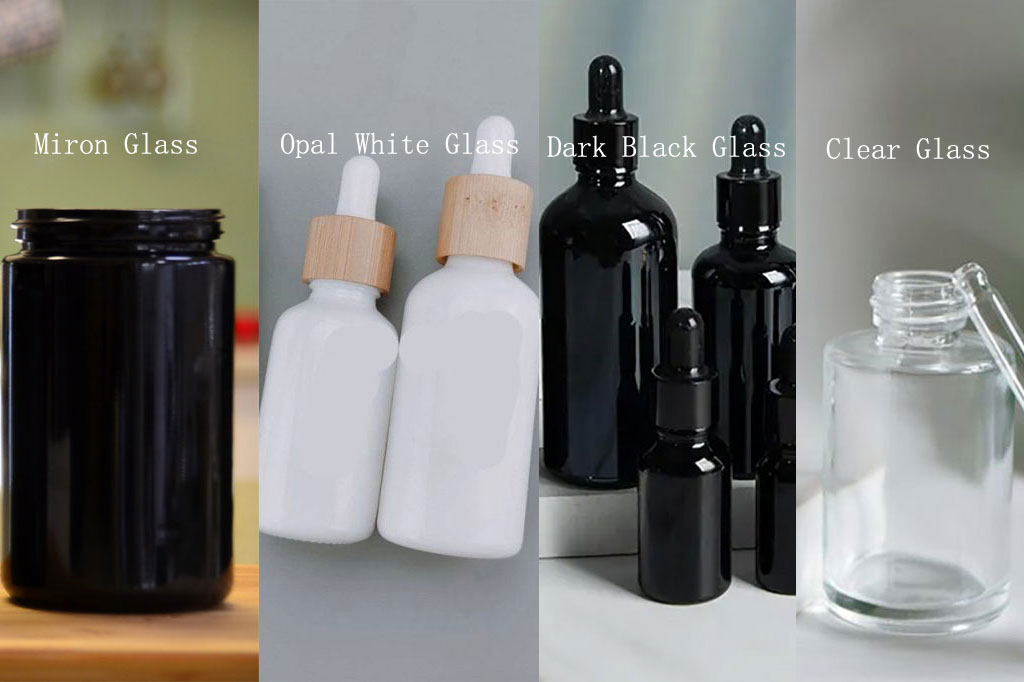Glass jars have evolved into multi-purpose containers suitable for a variety of uses, including storage, decoration, and more.
This guide will explore the different types of glass jars, highlighting their uses and the benefits they bring to everyday life.
Types of Glass Jars by Use
Glass jars can be tailored to specific needs. Here’s a closer look at some common types of glass jars categorized by their primary uses:
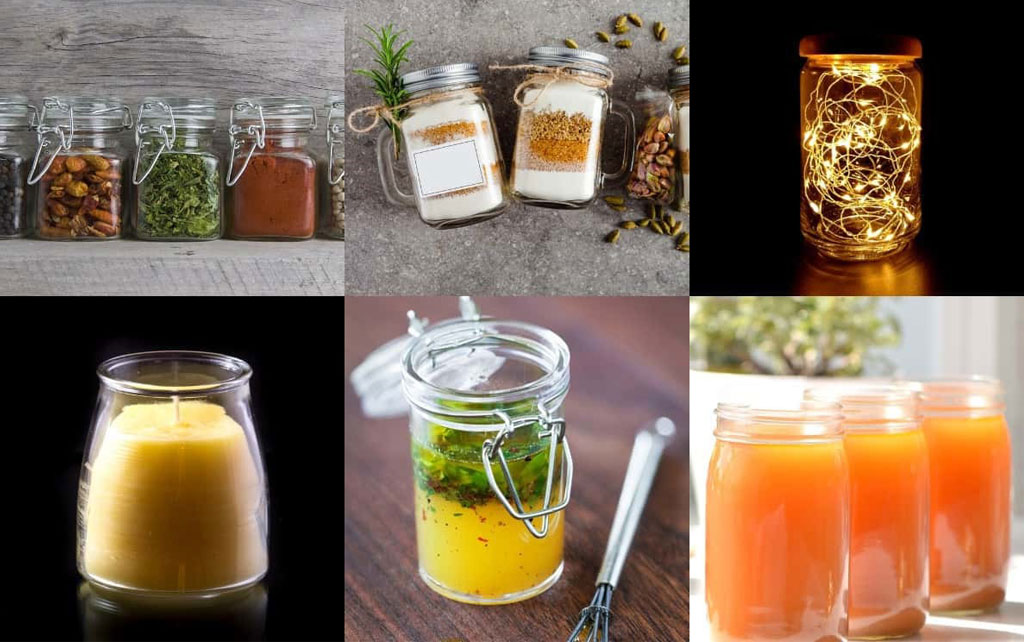
1. Food Storage Jars
- Mason Jars: Popular for canning and preserving foods due to their durable design and airtight seals.
- Spice Jars: Small jars with shaker tops or screw caps, ideal for storing and dispensing herbs and spices.
- Honey Jars: Typically come with wider openings to facilitate the scooping of honey.
2. Cosmetic Jars
- Cream Jars: Small jars designed to hold creams, balms, and other thick cosmetic products.
- Serum Jars: Usually come in smaller sizes with dropper lids or pump dispensers to allow precise application of liquid serums.
3. Beverage Jars
- Milk Bottles: Often used for storing and serving beverages like milk or juices. They have a nostalgic appeal and are typically made with thicker glass.
- Growlers: Used for beer or kombucha, these jars are larger, and designed to preserve the carbonation and freshness of beverages.
4. Decorative Jars
- Apothecary Jars: Elegant and often used in home decor for displaying items or storing bath products.
- Terrarium Jars: Large, clear jars that are perfect for creating miniature gardens inside.
5. Utility Jars
- Screw Top Jars: These have a secure screw top lid, making them ideal for storing non-food items in garages or workshops.
- Large Storage Jars: Used for bulk items such as laundry detergent, bird seed, or buttons in craft rooms.
Specialty Glass Jars
In addition to the common varieties used for basic storage and decorative purposes, several types of specialty glass jars offer unique features and applications. Here’s a look at some of the distinctive glass jars that cater to specialized needs or have historical significance:
1. Mason Jars
- Description: Originally designed for home canning and preserving, Mason jars have a sturdy build and a sealable metal lid with a rubber ring for an airtight closure.
- Uses: Beyond canning, they are widely used for DIY crafts, as drinkware in casual dining settings, and for storage of small items.
2. Apothecary Jars
- Description: Characterized by their wide mouths and glass stoppers, these jars were traditionally used by pharmacists to store medicine and dry goods.
- Uses: Today, they are often used for decorative purposes including storing bath salts, candy displays, or as elegant home decor accessories.
3. Hermetic Jars
- Description: Known for their airtight seal, hermetic jars typically feature a rubber gasket and a wire bail closure.
- Uses: Ideal for keeping food fresh, such as coffee, flour, or sugar, and also used for fermenting foods like pickles and kimchi.
4. Weck Jars
- Description: Originating from Germany, Weck jars are recognizable by their glass lids, rubber gaskets, and metal clamps, designed to provide a reliable and reusable seal.
- Uses: Popular in the canning community for their aesthetic appeal and practicality, they are also used for serving and presenting foods.
5. French Square Jars
- Description: These jars have a square base that maximizes shelf space and minimizes the jar’s footprint.
- Uses: Commonly used in both commercial and home kitchens for storing spices, herbs, and other condiments.
6. Amber Glass Jars
- Description: These jars are made from amber-colored glass which helps block UV rays and protects the contents from light damage.
- Uses: They are typically used to store light-sensitive materials like essential oils, pharmaceuticals, and chemical solutions.
Choosing the Right Glass Jar
Selecting the perfect glass jar for your needs involves more than just aesthetics; it requires consideration of the jar’s functionality, the contents it will hold, and the conditions it will be subjected to. Here are key factors to consider when choosing the right glass jar for your specific purposes:
1. Assess Your Needs
- Purpose: Determine what the jar will be used for. Is it for food storage, decoration, or perhaps for a DIY project? The intended use will affect the jars’ size, shape, and type of closure.
- Contents: Different contents may require different types of glass for chemical compatibility, UV protection, or pressure resistance.
2. Consider Size and Shape
- Capacity: Glass jars’ size can be customized to a size that suits the quantity of the contents you plan to store.
- Shape: Depending on where you plan to store the jar, certain shapes may be more practical. Square jars can maximize shelf space, while round jars may be easier to handle.
3. Check the Closure Type
- Airtight Seal: Essential for preserving food or any perishable items. Options include screw tops, hermetic seals with clamps, or cork lids.
- Ease of Use: Consider how frequently the jar will be opened and closed. A twist-off lid might be more convenient for everyday use compared to a wire bail jar.
4. Material Quality and Durability
- Thickness of Glass: Thicker glass is less likely to break but will be heavier. This is an important consideration if mobility or shipping is involved.
- Heat Resistance: For applications involving heat, such as microwave or dishwasher use, ensure the glass is heat resistant.
5. Evaluate Aesthetics
- Visual Appeal: If the jar will be displayed, consider how its color and design fit with your decor. Clear glass showcases contents beautifully, while colored glass can add a decorative touch.
- Branding: If the jars are for a business, make sure they are easily labeled or customized.
6. Sustainability and Safety
- Recyclability: Check if the glass type you choose is easily recyclable in your area.
- Food Safety: Ensure that the glass is food-safe if it will be used for storing edibles, free from harmful chemicals like lead and cadmium.
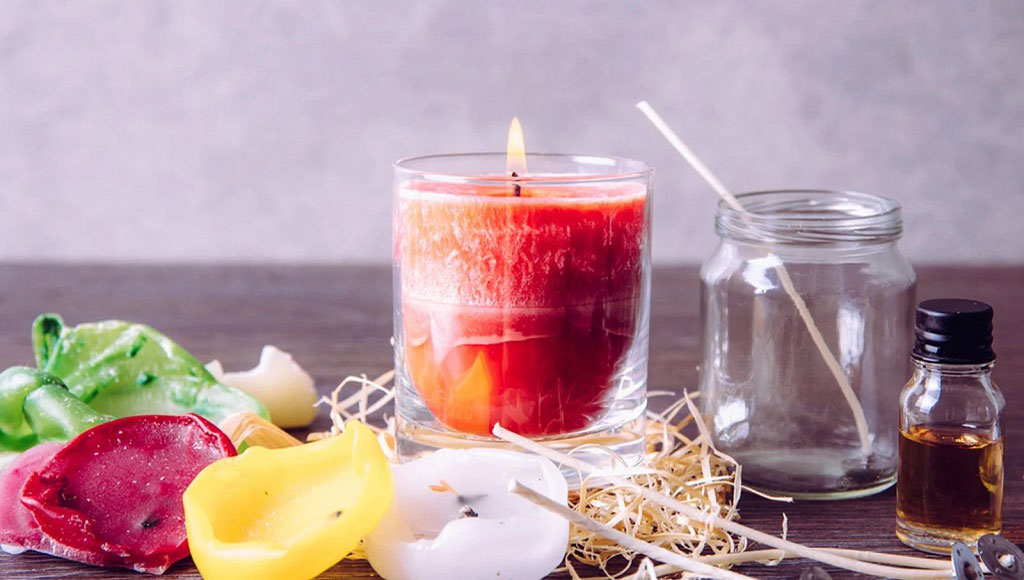
Creative Uses for Glass Jars
Glass jars are not only functional; they are also versatile tools for creativity and innovation in both home decor and practical applications. Here are some inventive ways to repurpose glass jars into useful and decorative items:
1. Home Decor
- Vases: Use jars of various sizes as vases for fresh or dried flowers to add a rustic charm to any room.
- Candle Holders: Fill jars with votive or tea lights to create different atmospheres. Layer sand, pebbles, or colored glass at the bottom for an added visual effect.
- Terrariums: Small to medium glass jars can be transformed into beautiful terrariums with moss, tiny plants, and decorative elements.
2. Organizers
- Desk Organizers: Store pens, pencils, and office supplies in glass jars to keep your workspace tidy and stylish.
- Bathroom Storage: Use jars to hold cotton balls, q-tips, makeup brushes, and other toiletries to keep bathroom countertops organized.
- Kitchen Storage: Store spices, baking ingredients, or leftover foods in glass jars. They keep contents visible and neat.
3. Lighting Projects
- Mason Jar Chandeliers: Attach several jars to a wooden plank or metal frame to create a rustic chandelier.
- Jar Lanterns: Decorate jars with glass paints or tissues and use them as lanterns for indoor or outdoor lighting.
4. Arts and Crafts
- Painted Jars: Use glass paints or acrylics to decorate jars. These can be used as pencil holders or simply as decorative pieces.
- Seasonal Decorations: Fill jars with seasonal items such as pine cones in the fall, ornaments in the winter, or colorful sand in the summer for a festive touch.
5. Gift Containers
- Gift Jars: Fill jars with homemade treats, beauty products, or craft supplies to create personalized gifts.
- Memory Jars: Use jars to hold cherished keepsakes, photographs, or notes. Great as gifts or keepsake items.
6. Planters
- Herb Gardens: Small glass jars are perfect for creating indoor herb gardens. Place them on a kitchen window sill for fresh herbs at your fingertips.
- Succulent Pots: Succulents thrive in small containers making glass jars ideal for these low-maintenance plants.
7. DIY Projects
- Soap Dispensers: Convert a jar into a soap dispenser by fitting a pump into the lid. This can add a vintage touch to your kitchen or bathroom.
- Snow Globes: With a little waterproof glue, glitter, and water, transform jars into magical snow globes for the holidays or as year-round decorations.
Care and Maintenance of Glass Jars
Proper care and maintenance of glass jars are crucial for extending their lifespan and ensuring they remain clean, safe, and beautiful for various uses.
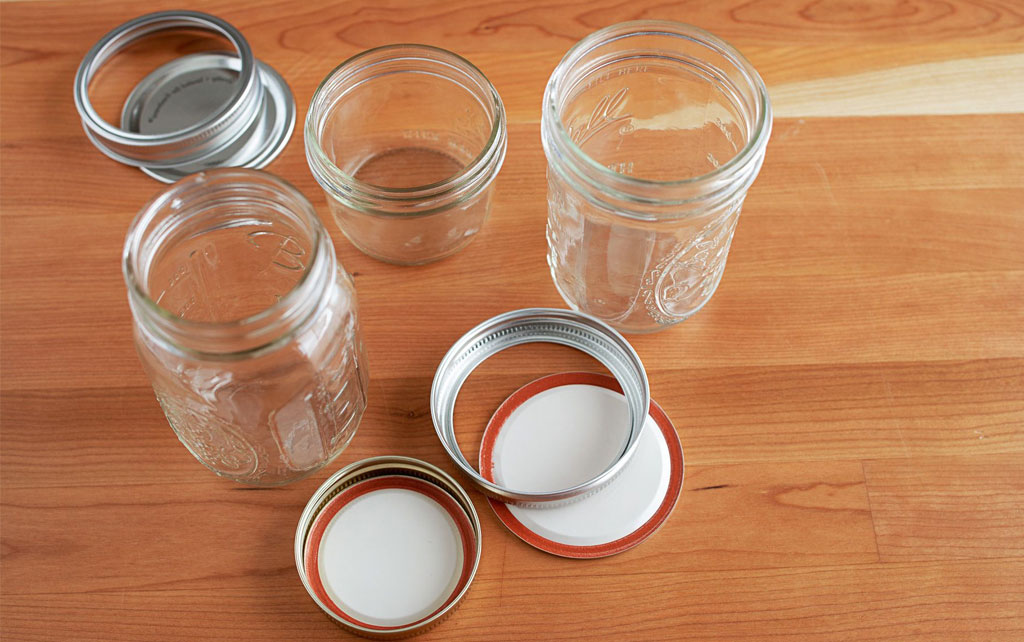
1. Cleaning Glass Jars
- Regular Cleaning: Wash glass jars with warm soapy water and a soft sponge to remove residues and prevent staining.
- Dishwasher Safe: Most glass jars are dishwasher safe. Place them in the top rack of the dishwasher to avoid any harsh contact with other items that might cause cracking or breakage.
- Drying: Allow glass jars to air dry completely to prevent water spots. For a spotless finish, you can also dry them with a lint-free cloth.
2. Removing Labels and Adhesive
- Soaking: To remove labels or adhesive residue, soak the jars in warm, soapy water for several hours, then peel off the labels.
- Scraper Use: Use a plastic scraper or a credit card edge to gently scrape away residues without scratching the glass.
3. Sterilizing Glass Jars
- Boiling: For uses that require sterilization, such as canning, submerge glass jars and their lids in boiling water for at least 10 minutes to kill any bacteria.
- Oven Sterilization: Alternatively, bake the clean jars in the oven at 225 degrees Fahrenheit for 20 minutes.
4. Storing Glass Jars
- Avoid direct sunlight: Store glass jars in a cool, dark place to prevent exposure to light, as light can degrade the contents and cause thermal damage.
- Proper Stacking: Avoid stacking glass jars directly on top of each other without protective padding as this can lead to chipping or breakage.
5. Inspecting for Damage
- Regular Checks: Regularly inspect your jars for any chips, cracks, or breaks, especially if they are used frequently for food storage or contain liquids. Discard damaged jars to avoid safety hazards.
6. Preventing Breakage
- Temperature Changes: Be cautious of sudden temperature changes, as glass can crack under thermal shock. Do not pour boiling liquids into cold jars or expose cold jars to hot environments abruptly.
7. Recycling Old Jars
- Recycle: When glass jars are no longer usable, consider recycling them if your local recycling program accepts glass. Alternatively, repurpose them creatively around your home.
Conclusion
Glass jars are invaluable for their versatility and sustainability, serving functions ranging from storage and decoration to unique DIY projects. By selecting the appropriate type of jar for your needs and maintaining it properly, you can fully exploit its benefits.

